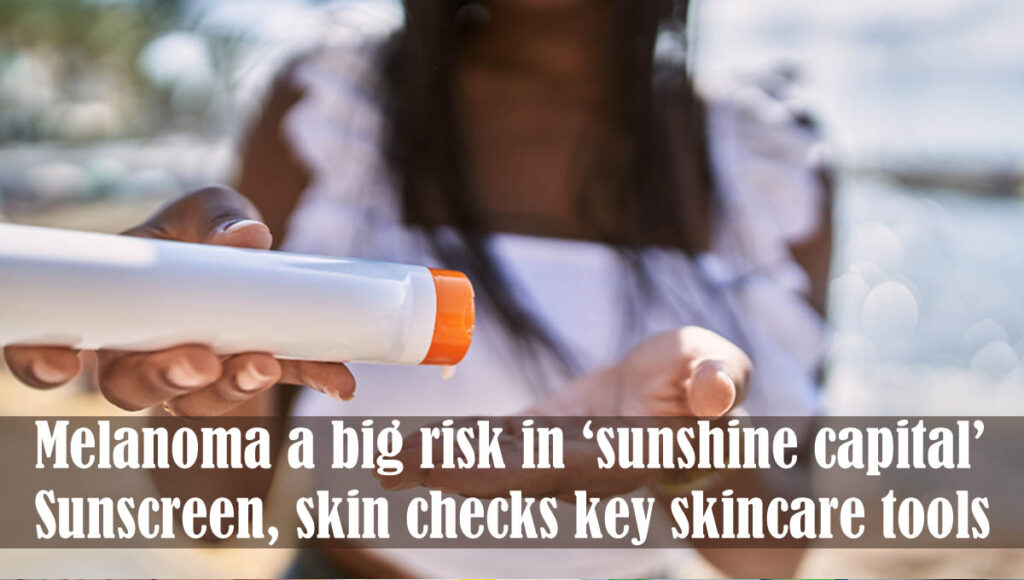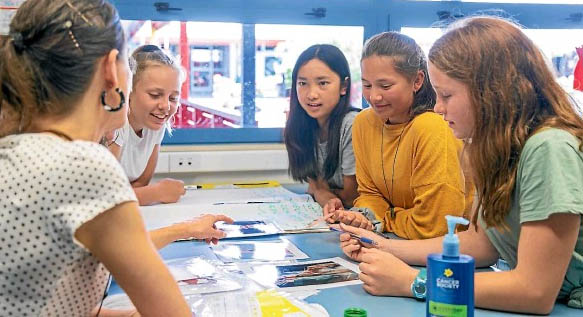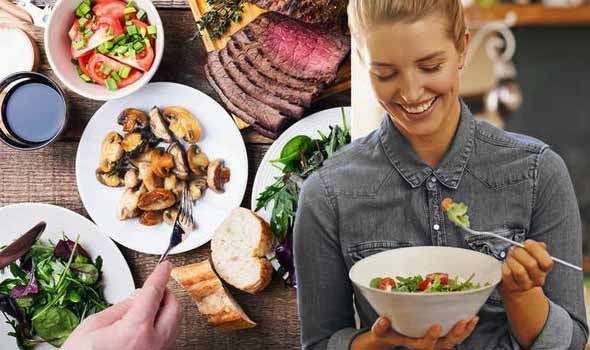The Top of the South brings more specific challenges for the Cancer Society, for the same reason, ironically, that makes it such a desirable destination. Nelson is New Zealand’s sunshine capital, and that’s why people live here and move here, because they love the great outdoors and everything Nelson has to offer, says Cancer Society Nelson centre manager Michelle Hunt. ‘‘We have beautiful weather so we’re outside a lot, but it also means there is a lot of exposure over time to ultraviolet (UV) rays from the sun,’’ she says.

Tragically this contributes to New Zealand as a whole suffering the highest rate of melanoma (UV radiationinduced skin cancer) in the world.
New Zealand has less atmospheric pollution than many other countries to block the sun’s harmful rays, and infamously, a far thinner ozone layer as well. Add to this the ‘‘perihelion effect’’, a quirk of the angle of the Earth’s rotational axis which physically brings New Zealand closer to the sun than other parts of the globe during our summer. The result is a horrifying 82,000 cases of skin cancer every year, and 80 per cent of all new cancer diagnoses in this country are melanoma, equating to six cases each day.
‘‘That’s about 535, on average, deaths per year, more than the 320 or so annual road death toll,’’ says Michelle. ‘‘A big part of our role is trying to put that message out there because there are no government-funded prevention programmes or public health campaigns.’’
The Cancer Society places a large emphasis on skin cancer prevention.
‘‘We run the SunSmart school programme, where schools can apply to be SunSmart, which involves ensuring kids wear hats outdoors, sunscreen and seek shade,’’ says Michelle.
‘‘Education with children is improving — they can’t play outside during term 1 and term 4 unless they wear a hat, so we’re hoping that the next generation will learn from what we didn’t know at their age.
‘‘We try to work with the city councils on policies, and providing shade at local playgrounds.’’
Annually in October the Cancer Society Nelson Tasman makes available 1000 skin-check vouchers at cancernelson.org.nz to anyone in the Nelson/Tasman region. The Society was left a bequest from a man named David Blunt, and one of his wishes was that it is used to give access to skin checks. The $75 voucher will cover a 30-minute consultation with most GPs.
‘‘There are other health providers that are more expensive, but the vouchers are a contribution towards removing the cost barrier to people having themselves checked,’’ Michelle says.
In the meantime, messages for everyone venturing out into our harsh sun include using sunscreen correctly.
‘‘Put two coats of sunscreen on before you go out, like painting a house: undercoat then top coat. Do this 20 minutes before sun exposure to allow the sunscreen to be absorbed into the skin. If everybody just thinks about one teaspoon for each limb, and half a teaspoon for the face and neck, and remember to do that every two hours,’’ says Michelle.
‘‘Wear a hat and make sure you sit in some shade at the height of the summer sun. Sunglasses are important, and clothing.
‘‘Even Australia does not have sun as harsh as it is here; our UV levels are 40 per cent higher than anywhere else in the world. There’s also the UV Today phone app, and NIWA has a UV forecast, so check levels even on a cloudy day. Please do not just rely on sunscreen.’’



